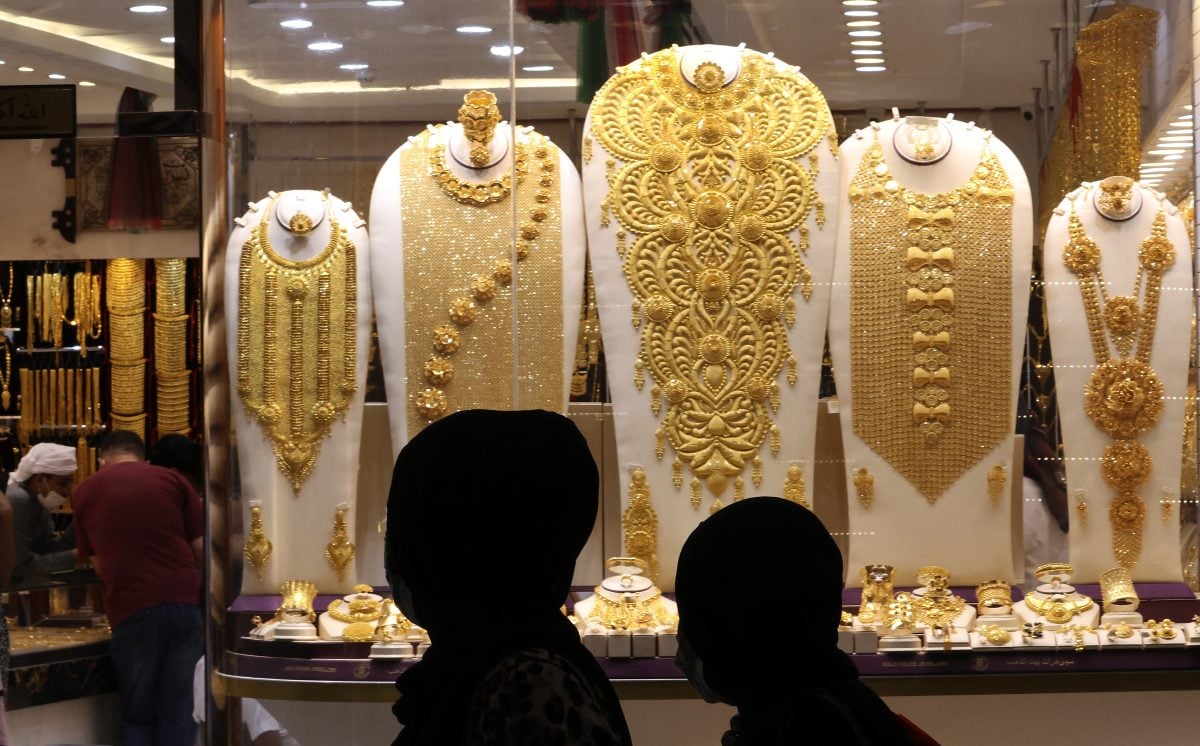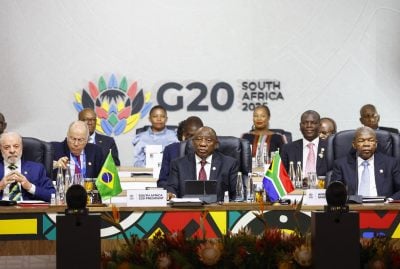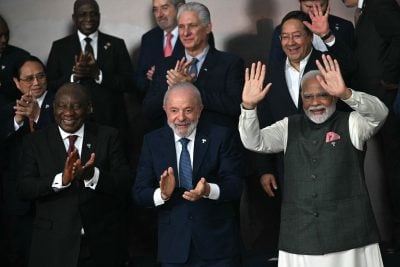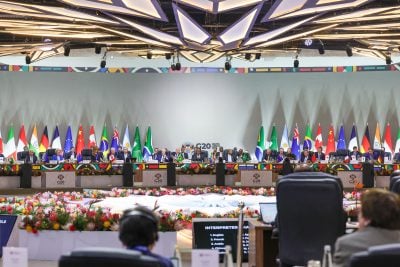Farmers in the villages of Nigeria’s northern state of Zamfara are facing a double jeopardy.
Soil and rock in the region contain gold, providing financial incentives for them to undertake artisanal mining – small-scale subsistence mining performed with basic tools. But added to the inherent risks in this process is the fact the local ore contains lead. This has resulted in widespread lead poisoning as locals breathe in lead dust as well as eat food and drink water contaminated by the metal.
In the early 2010s, it was estimated that hundreds of children died and thousands were permanently disabled in what Human Rights Watch called the worst lead poisoning epidemic in modern history before coordinated treatment from international partners was made available.
To make matters worse, the region has faced violence by rival armed groups looking to control the gold trade, leaving thousands of people dead.
Now Nigeria is seeking ways to end the twin problems. President Bola Tinubu’s administration is engaging the government of the United Arab Emirates (UAE) – identified as the prime destination of gold smuggled out of Nigeria – to help staunch the illegal flow. This formed the subject of discussion in a meeting in late October between Nigeria’s minister of solid minerals Dele Alake and the UAE ambassador to Nigeria, Salem Saeed Al Shamsi.
“In the mining sector, we see significant opportunities for collaboration,” said Alake. “While there is considerable trade in gold, much of it remains illegal, with a large portion of Nigerian gold ending up in the UAE unlawfully.”
The minister called for both countries to work together to put in place strategies to stop the illegal trade while facilitating and regulating a legitimate trade in gold that would be mutually beneficial. It was agreed at the meeting that a technical committee would be created to work out the strategies for collaboration.
Cracking down on the illegal trade
Mining remains a key area of common interest for both countries. Nigeria’s minerals are in global demand while the UAE is a major hub for refining, the jewellery trade and re-exports. Gold is Dubai’s second-most valuable export after oil, with the city home to gold vaults, jewellery-making facilities and refineries.
The Emirates, however, has long had a reputation as a hub for the illegal trade. According to a report released in May by Swissaid, the UAE was by far the main destination for African smuggled gold in 2022, with some 405 tonnes of undeclared output from Africa ending up there.
From 2012-22, some 2,569 tonnes of African gold worth around $115bn reached the country.
Each year, between 321 and 474 tonnes of artisanal gold are produced in Africa without being declared, equating to a value of between $24bn and $35bn.
The declaration and labelling of artisanal gold is likely to be a major part of any future cooperation: SwissAid recommends that the UAE strengthen customs controls on gold imports, in particular to ensure that the gold has been correctly declared in the country where it was mined. Regulation around hand luggage must be strengthened and more transparency on the true origin of imported gold introduced, it says.
For African countries, the NGO recommends the formalisation of artisanal and small-scale gold mining, tax harmonisation, and increased and tighter controls to combat smuggling.
Growing rapprochement
The pledge to cooperate on mining is part of a growing rapprochement between both countries after relations were strained by a UAE visa ban that targeted Nigerians, and the suspension of Emirates and Etihad Airlines flights to Nigeria.
In September 2023, it was confirmed that UAE-based flag carriers Emirates and Etihad Airlines would resume flights to Nigeria as part of a wide-ranging deal between Bola Tinubu and UAE President Mohamed bin Zayed Al Nahyan in Abu Dhabi, which also included the repeal of the visa ban and pledges of billions of dollars of UAE investments into Nigeria. The UAE had stopped issuing visas to Nigerians in 2022 when Emirates suspended flights, citing its inability to repatriate funds from the country then led by President Muhammadu Buhari.
The UAE in the past decade has emerged as the fourth largest investor in Africa behind China, the European Union and the US, accounting for $59.4bn, more than half of the $100bn invested by the Gulf Cooperation Council countries in the continent, according to the World Economic Forum.
In March, the UAE-owned International Resources Holding bought a majority stake in the Mopani copper mine in Zambia. Nigerian officials are hopeful of drawing some of the investment funds to its mining sector. Nigerian finance house Woodhall Capital has plans to organise several business forums where UAE citizens and Nigerians can explore opportunities. Focused on raising funding for banks, other corporate organisations and governments, Woodhall Capital has offices in Lagos, Abuja, Dubai and London, and is one of the firms helping to facilitate UAE investments in Nigeria.
“The UAE government has decided that it would collaborate, not only with Woodhall Capital, but they are also looking for captains of industry,” said Woodhall Capital founder Moji Hunponu-Wusu at a recent forum organised by the UAE consulate in Lagos.
“And when we were given the brief to put this forum together, they wanted to show that if they can collaborate with us, they are also interested in the clients we represent.”
As many as 35 companies from the UAE and the Middle East have indicated an interest in participating in an economic forum planned for Nigeria in the coming months with the intention to invest in the country, according to ambassador Al Shamsi.
Tackling the bandits
Still, even if UAE-Nigeria business and mining ties strengthen, attempts to reform Nigerian gold mining will face the twin challenge of cleaning up a region contaminated by lead and pacifying the armed groups that have cornered the lucrative gold trade for years.
Nigerian security forces have stepped up efforts to prise the gold mines off the armed groups to create the security required for lawful business to thrive. But it is a tough campaign given that areas affected by the combination of mining and banditry currently stretch from Nigeria’s northwest to parts of the country’s centre.
Troops in September ambushed and killed Kachalla Halilu Sububu, the leader of one of the biggest armed groups in Zamfara state, who evolved from being a cattle rustler to controlling a large share of gold mines in the region.
“This operation highlights the potential rewards and risks of law enforcement targeting senior bandits,” the Global Initiative Against Transnational Organized Crime (GI-TOC) said in its latest assessment report on the region published October 11.
“Sububu’s killing may be a win for the state by ending his reign of terror, but it could also trigger an upsurge in violence and instability as rival factions scramble to vie for control over the lucrative revenue streams,” it reported.
The violence in the northwest, which is distinct from the jihadist violence in the northeast, has persisted since 2011, claiming more than 4,000 lives since 2022 alone, according to GI-TOC. The International Organization for Migration estimates there are at least 1.3m people internally displaced by the violence that has plagued swathes of northwest and central Nigeria.
Clean-up operations continue
Apart from pacifying the bandits, a clean-up process is going on in the lead-contaminated areas as part of the programme to ensure safe mining practices. In some of the affected communities, local people mined gold ores that contained lead without using any protective equipment. They would often take them home for processing, further spreading the contamination through the local environment. As exposure levels rose, animals and birds in many of the communities started to die first, followed by children and then adults.
The strategy adopted by Nigerian health officials and their international partners to remove the lead has been to take away the contaminated topsoil and replace it with fresh, uncontaminated soil. Public health officials are also educating community members in the affected areas about safer health practices they should adopt to prevent further contamination.
In late September at a side event dedicated to the issue at the UN General Assembly, Alake announced plans to procure additional equipment for the detection of lead in communities and called for more education around the threat posed to those mining gold and other minerals. He emphasised the need to factor lead reduction into the process of local value addition.
Want to continue reading? Subscribe today.
You've read all your free articles for this month! Subscribe now to enjoy full access to our content.
Digital Monthly
£8.00 / month
Receive full unlimited access to our articles, opinions, podcasts and more.
Digital Yearly
£70.00 / year
Our best value offer - save £26 and gain access to all of our digital content for an entire year!
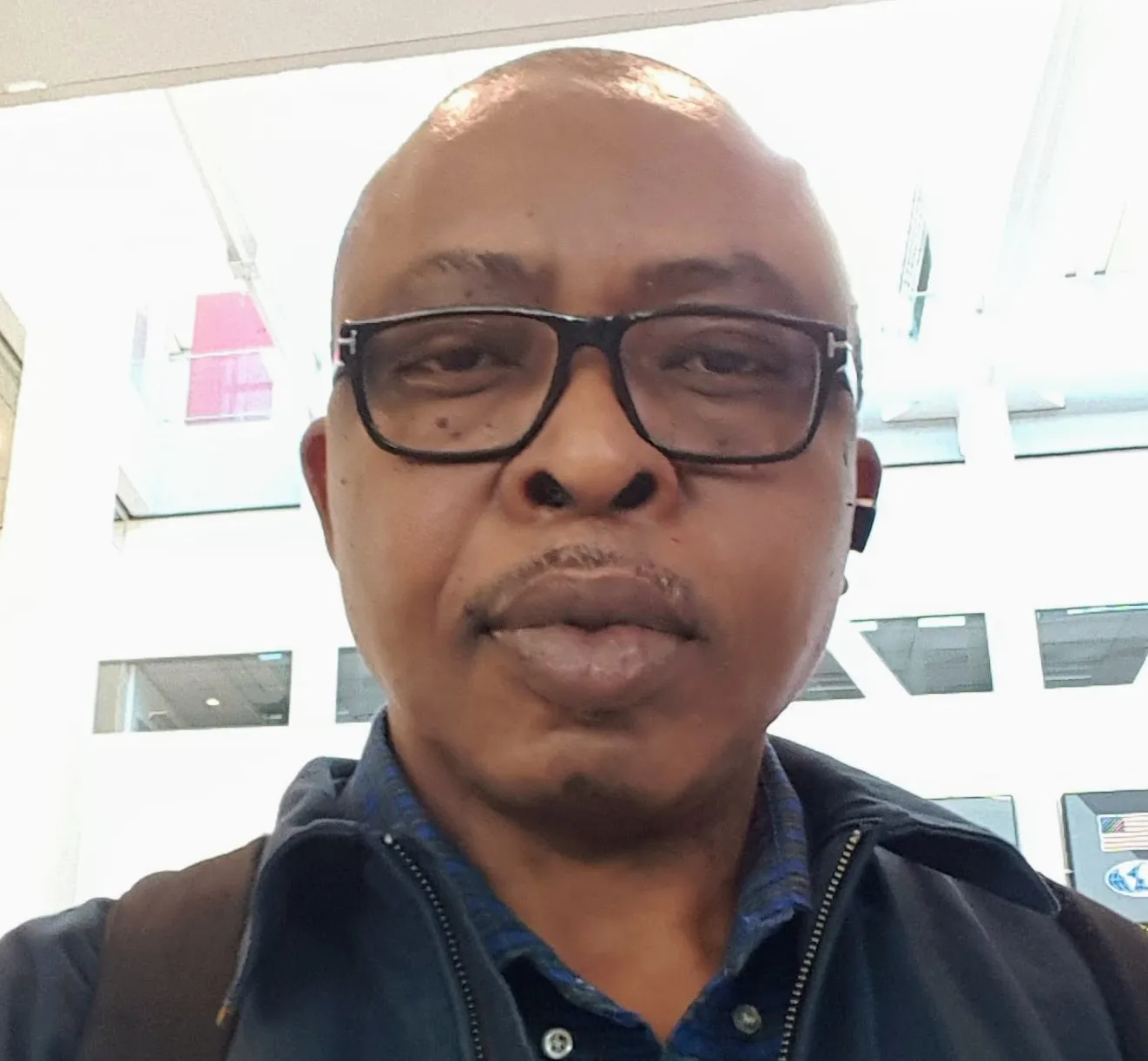
 Sign in with Google
Sign in with Google 